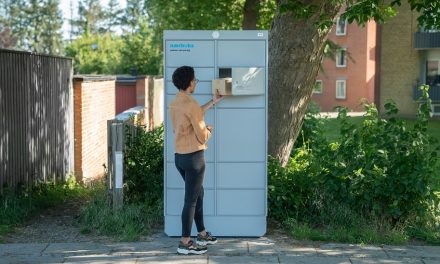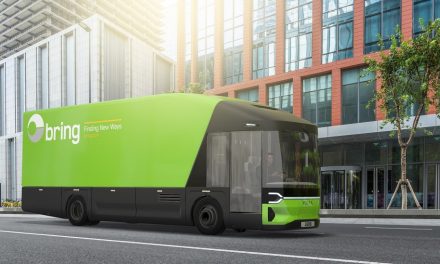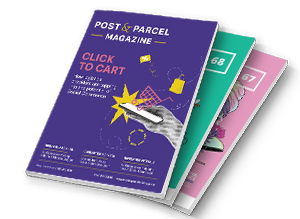
Bring on the competition!
In a time of increased mail liberalisation, Mail & Express Review sought an insight from Bring Citymail’s CEO Mats Forsberg. Leading a business in opposition to a national postal operator is not an easy task, despite 2011 being the landmark year for the liberalisation of a majority of the European postal markets. However, a country that is largely heralded as ahead of its time, Sweden, has ‘been there, done that’. The Scandinavian country’s postal industry was liberalised in 1993, allowing companies such as Bring Citymail to go head to head with their established rival, the national postal operator Posten.
Ownership and relations with the local post
“We are a wholly owned subsidiary of Norway Post, with the CEO, Dag Mejdell, as Chairman of our Board. Hence we are at the very core of Norway Post. At the same time we operate with a very high level of autonomy” Forsberg explains.
Bring Citymail covers 54% of households in Sweden, with Forsberg confirming that the company “has no plans to increase….geographic market coverage.”
The nature of competition with Sweden Post has changed over the period since 1993. “This period can be divided into three different phases, where the first phase was characterised by a lot of conflict and juridical matters, and the second phase was one of confidence and mutual respect” is Forsberg’s analysis. “Unfortunately we have during the last couple of years seen a return of behaviour by Sweden Post that does not belong to a deregulated market. This has been addressed by the regulatory authorities, but unfortunately these processes tend to take a very long time” is how he summarises the current, third, phase of the relationship.
Bring’s business model
An important aspect is how a company positions itself in order to maximise its business opportunities. Forsberg says: “The Swedish market was among the very first to be deregulated. Along the way we have learnt many lessons, which now make us one of the most efficient operators. In the short term the most significant effect is that all competitors play under the same rules. In the long term we will certainly also look to leverage on our competences gained in the deregulated Swedish market.”
“We have a totally different business model” Forsberg asserts when quizzed on whether a private operator differentiates its business plan from that of a national post. “We look at the market demand and how to meet it. The monopolies more or less have a product and set the price to cover costs and deliver a profit.”
The recent recession has hit postal operators hard, further escalating the fall in physical mail volumes as the consumer explores the benefits of the digital era. “As we all know traditional mail volumes are going down. Of course this also affects our business but still there are interesting segments where we see growth potential” Forsberg remarks. “What we also look closely at now is how digital communication can be integrated into our offer. In this area we have a big advantage in comparison to the old monopolies. Our ability to adapt to changing market conditions is much higher than the old monopolies.”
“We specialise in the segment industrialised post. Even though volumes have diminished our research shows that the perceived value by those who receive direct mail, and advertising, increases. Attitudes towards conducting business, and receiving information via different internet based solutions, is constantly improving. However, advertisers are not able to combine and leverage the internet and the physical mailbox in an optimal way. Digitalisation will continue and increase –making certain mailings disappear. There are many exciting opportunities ahead of us.”
Withdrawal from Denmark
Bring Citymail shut down its operations in Denmark in 2009. We asked Forsberg why this decision was taken. “The deregulation in Europe was scheduled to take place as of January 2009. When it was then postponed, we had a competitive disadvantage in the fact that our services were subject to VAT, whilst Danish Post did not have to put VAT on top of their price. The VAT gave Danish Post a 25% head start in price. In the circumstances, our withdrawal from the Danish market was the right move to make.”
The closure had minimal effect on the Swedish business. “Operations in Denmark and Sweden were separate entities and thus it has not affected us to any larger extent [in the latter]. Of course there were also some synergies in sales, brand building and administration, but they were not significant. “
A climate neutral company
The final part of the interview focused on the environment, a subject the CEO is passionate about.
He says that Bring Citymail continues to strive for excellence across its green agenda, where its claims to be “the first climate neutral company within the postal sector in the world”.
Forsberg tells Mail & Express Review: “To be climate neutral, we compensate for the unavoidable emissions we make. The arrangement revolves around the vision that the business should not contribute to global warming and a plan for action is set up accordingly. The action plan involves mapping of the company’s emissions, measures to reduce emissions, and compensation for the remaining emissions by supporting global climate projects.
“Apart from the climate neutral arrangement we also uphold a sustainable profile in our everyday work……we use bikes in our deliveries and when not possible we use environmentally friendly cars and mopeds. Moreover, I think it is important to keep in mind that sustainability not only involves the environment, but the connections between a good business environment, healthy co-workers and business benefits.”
Warming to his theme, Forsberg concludes: “Our last sustainability report is partly a result of the large expansion we went through in 2008. Accordingly, our total emissions increased during 2009. As we aim to be the best sustainable alternative for our customers, we continuously develop our work and take seriously our responsibility as a large company. Overall, we are very proud of our sustainability work. We won the Swedish Publishing Prize for best sustainability report in 2010. In 2009, we were an appointed climate model by the UN and in September I was invited to speak at the UN Climate Change Conference in New York.”
This article was published in the June issue of Mail & Express Review. To subscribe to the magazine, click here.













